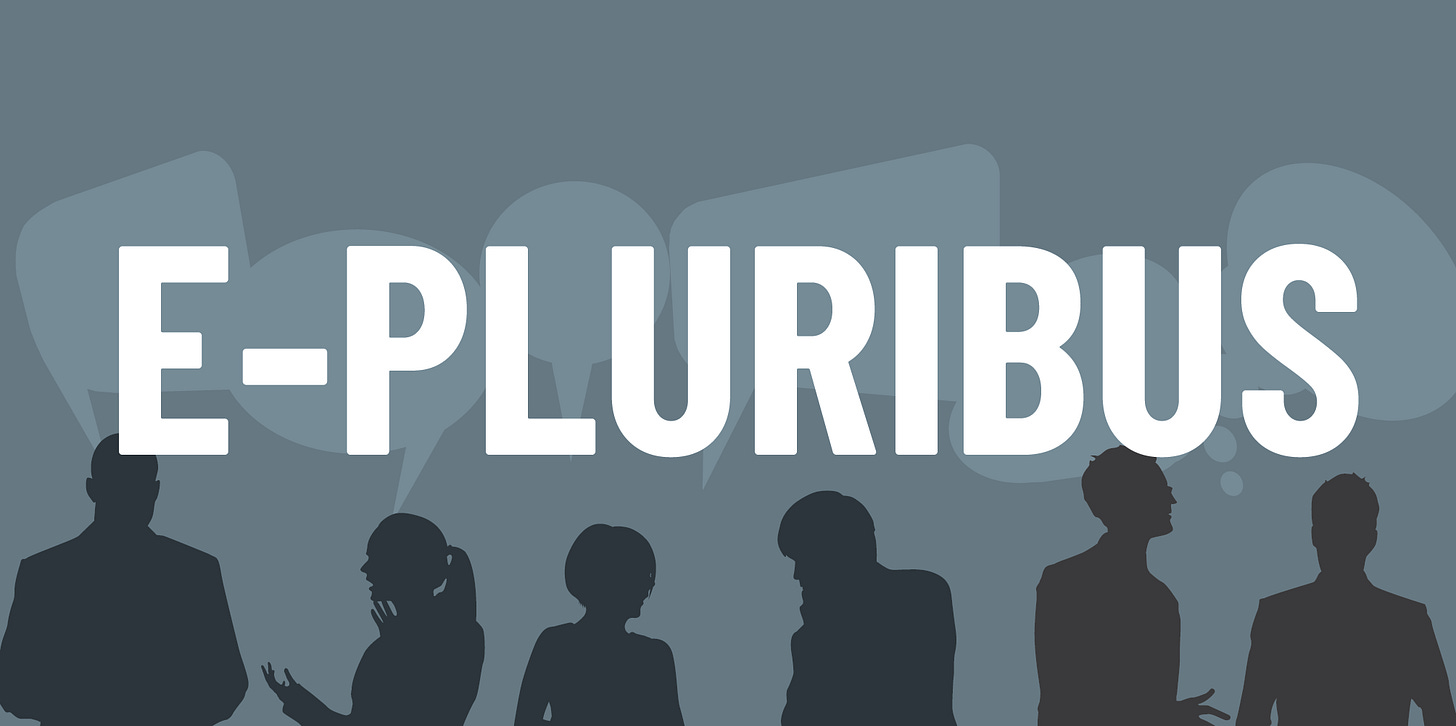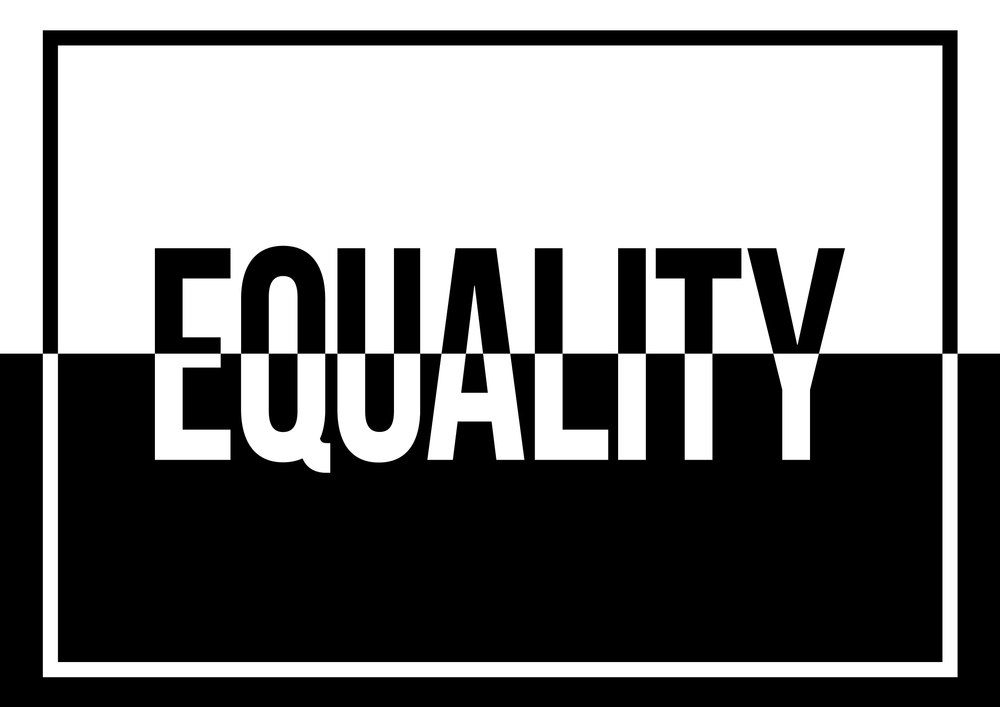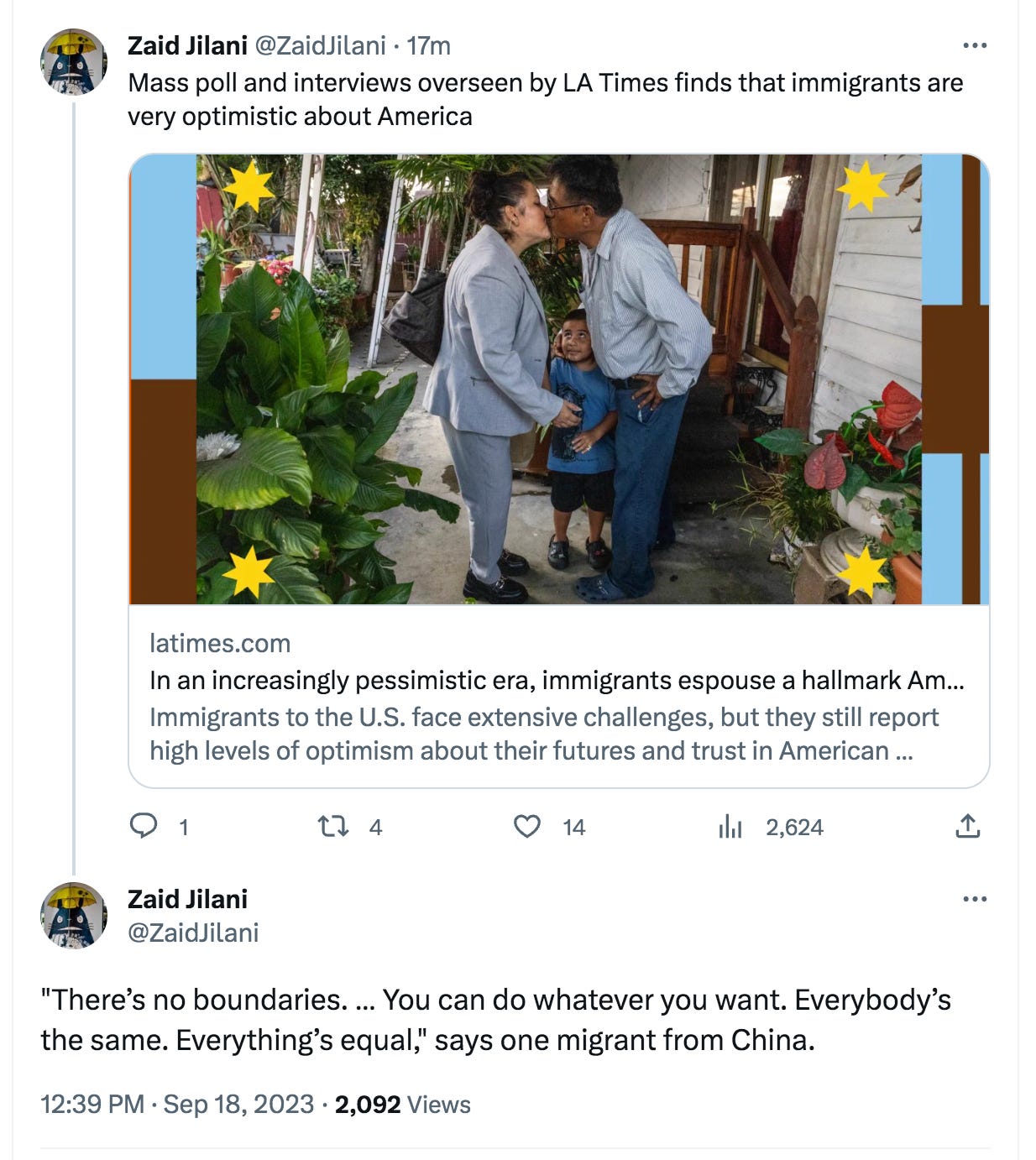E-Pluribus | September 18, 2023
The bureaucracy of censorship; what we can learn from two past Ivy League presidents; and what should racial equality look like?
A round-up of the latest and best writing and musings on the rise of illiberalism in the public discourse:
Joanna Williams: The Censorship Bureaucracy
It is difficult to exercise power over a large group of people alone, and Joanna Williams writes at City Journal that the forces of censorship are no different. A well-developed bureaucracy is essential to carry out the aims of authoritarians, and since bureaucracies are by their nature accountability-resistant, dismantling that system will prove difficult.
In order to promote not just a legal right to free speech but a culture that values the free exchange of ideas as an end in itself, we need to dismantle the censorship bureaucracy that has become entrenched across Western societies over the past two decades. To do this, we have to understand what drove the explosive growth of illiberal, partisan policies that now seem to govern every aspect of our lives—at school, on campus, in the workplace, online, and in public spaces such as libraries, museums, and theaters.
Universities have perfected the bureaucratization of censorship. The Foundation for Individual Rights and Expression (FIRE) shows how policies on Internet usage, harassment, tolerance, respect and civility, bullying, protest and demonstration, posting and distribution, bias and hate speech, and security all act to limit free speech on campus without ever once referring to censorship. It is the same in the U.K. A college at the University of Oxford recently issued a “transgender inclusion statement” forbidding “unlawful discrimination, victimisation, bullying or harassment of trans people.” Examples of behavior deemed to violate the policy include “making jokes about trans people or their trans status” and “consistently using incorrect titles or pronouns.” As the U.K.’s Free Speech Union (FSU) points out in a letter to the college, demands on students to “affirm everything a trans person believes about their gender [. . .] would be a breach of the College’s legal duty to uphold free speech.”
[ . . . ]
Having begun life on campus, speech codes have migrated seamlessly into the workplace and cultural institutions, courtesy of diversity, equity, and inclusion (DEI) officers. Once, human resource managers considered workplace safety a matter of fire escapes and first-aid kits. Now, more expansive definitions of harm encompass risks to mental as well as physical health, and safety means emotional safety or protection from offense. The requirement to manage not just the physical working environment but the emotional climate and the ways in which colleagues interact with one another vastly expands the remit of the human resource department. The new goal is to ensure that “all employees feel accepted and supported to better serve the mission of the company.” Under the guise of banishing offense, DEI officers police the speech of colleagues.
Read it here.
Pamela Paul: Some Words of Wisdom From the Top of the Ivy League
Ivy League colleges are a favorite punching bag these days, but Pamela Paul writes for the New York Times that there’s something we can all learn from the stories of two former presidents of those schools. The world is very different than it was half a century ago, but as the writer of Ecclesiastes said, there’s nothing new under the sun, and what Ruth Simmons and Drew Gilpin Faust experienced throughout their lives and careers has lessons for today.
So how did these two women, Ruth Simmons, the president of Brown University from 2001 to 2012, and Drew Gilpin Faust, the president of Harvard from 2007 to 2018, both born into a world that expected little of them, get to the top of the Ivy League, and what can students today learn from their experiences?
The answer — despite the authors’ very different backgrounds — is remarkably similar in both cases. Both women refused to let familial or social circumstances stand in their way, both developed a strong sense of purpose, and both believe in the importance of failure. While irrevocably shaped by their backgrounds, both were determined not to let their pasts dictate their futures.
Crucially, both women were born in an era when nobody would have imagined their careers to be possible. Simmons calls this turnabout “the unpredictability of opportunity.” In her book, “Up Home: One Girl’s Journey,” she recalls a colleague telling her “there would be no place for me in the profession I was so keen to pursue.” Faust talks in her book, “Necessary Trouble: Growing Up at Midcentury,” about unexpected “doors that open.” As Faust told me, “If someone had said to me when I was young, ‘One day you’ll be the president of Harvard,’ I’d have said, ‘Don’t be crazy.’” When Simmons was offered a post as president of Smith in 1995, she initially figured it had been a mistake.
[ . . . ]
We live in pessimistic times. For Simmons and Faust, opportunities were not yet open for women, especially for poor Black women with no connections, and many young people today feel as if the window of opportunity has closed again. That makes Simmons’s and Faust’s childhood experiences newly relevant 50 years later.
It’s not, their stories tell us, the circumstances into which we are born that bind us; it’s how we allow, or refuse to allow, them to define us that makes us who we are. For students who feel stymied by overwhelming circumstance — climatic, economic, technological, social — there’s both a comfort and a challenge in that message.
Read the whole thing.
Glenn Loury and Randall Kennedy: What Is Racial Equality?
In anticipation of a debate with professor of law Randall Kennedy at College of the Holy Cross in Massachusetts on affirmative action, Glenn Loury posted a transcript of a conversation Loury had with Kennedy in 2020. It’s difficult to get a complete sense of what Loury and Kennedy discuss outside of the complete context, but some excerpts are below. However, the entire talk is at the link.
If I put that question to myself, you know, “Randy, you’re the king for a minute. You’ve got the magic wand in terms of racial equality. You can do whatever you want. You don’t have to worry about any external forces. You don’t have to worry about democracy. You can do what you want. What would you do?” The fact of the matter is—and it’s an embarrassment—I wouldn’t handle that question as satisfactorily as I’d like. And the reason why is because I haven’t thought about that question nearly enough.
What is it that we want? What is racial equality? What would racial equality look like? As soon as we ask that question, then we start talking about affirmative action. I’m happy to talk about affirmative action. It exists. We can talk about it. We can talk about reparations. But those debates I think are often digressions. We should focus more on, what would racial justice entail? What would it mean? What would reaching the racial promised land, what would the topography look like? What are its boundaries? How would we feel? How should we feel? What would it look like? I think that we should focus a lot more on that, and what needs to be done. After we think about what we’d like, how, as a practical matter, do we get there? I think, Glenn, that you and I spend too much energy, too much time, too much effort on issues that are real, they’re there, but they’re not the ones that should call upon our main energy.
[ . . . ]
I consider myself a person of the left. My peeps are the people who turn out the American Prospect, the Nation, Dissent magazine. That’s where I hang out. And I don’t think that the development story is outside of that. If it was the case that folks were being held down, if that was the only problem, then, well, if you could just get the hand off, they’d pop up and everything would be all right. No, no. It’s actually more tragic than that. The wages of racial oppression in the United States have had a debilitating influence on people. People want to act like the wages of oppression do not have a debilitating influence on people. Yes, they do. They actually do. It actually changes people. It actually makes people … you want to be away from them, and people don’t really want to face I think oftentimes the wages of racism.
You talked about affirmative action. I’ve been in many classes. I’ve taught affirmative action classes a million times, and there is a point when you’re talking where you’re walking for the affirmative action cases, in my experience, it gets really tough because I think in the classroom—especially with the black kids—there’s a feeling of shame. There’s a feeling of shame because you people are talking about the charts, who scored this, and blah, blah, blah, and there’s this feeling of shame. And people want to say, “No, there is no real difference. There really is no difference,” you know? This kid got 750, this kid got 550, but there really is no difference. That difference in 200 points is just because of the questions they asked or something. People come up with all sorts of things, and it’s very tough because, you know, I say there’s a difference. There is a difference. The kids with 750, there’s a reason why they scored 200 more points. They know more. They are, at this point, more capable.
And why? Are we surprised by that? We shouldn’t be surprised by that. Black people got out of slavery in 1865. That’s not all that long ago. And then their parents were deprived. What, you think that that’s going to go away fast? No. We are working with the wages of racial oppression, and it’s tough to swallow that because somebody is saying, “Does this mean you are lesser-than?” And I say, “Yeah. Yes. And you’ve got to accept that.”
But that shouldn’t be the end of the story. Just because you’re behind on day one doesn’t mean that you have to be behind on day 365. But do recognize you are behind on day one. And if you don’t recognize you’re behind on day one, you’re not going to take the steps to catch up.
[ . . . ]
On the question of reparations, I’ve been a proponent of affirmative action, and I still am a proponent of affirmative action. I’ve basically said that the best argument for affirmative action is it’s basically a reparations-based argument. To tell you the truth, for me, I want resources. I want our society to address need, and frankly, whatever argument will allow for that, okay.
In actuality, I’ve become less attached to the reparations argument insofar as, ultimately, it’s concerned with the history of one’s need. You’ve got to check this box. You know, something happened bad to my people. Well, I mean, if you’re a true reparationist, a true reparation-ist says give money to Oprah. If Oprah’s people were enslaved, give money to Oprah. Well, as far as I’m concerned, Oprah doesn’t need money. I want to give resources to people in need. There are plenty of black people in need? Fine. There are plenty of white people in need. There are plenty of Latino people in need. There are plenty of Mung in Cambodia, and I don’t care? I care. I’m interested in history, but I don’t think that the normative engine should run on a matter of history. I think the normative engine should run on some notion of human needs today. Let’s address those and move forward. There’s more to say, but let’s talk.
Read it all here.
Around Twitter
This thread is from May, but was recently re-posted by Wesley Yang. Excerpts below:
Despite years of bad press America has received from around the world and all the rancor about immigration here, Zaid Jilani points out that immigrants themselves retain their optimism:
And finally, via Steve McGuire, the mayor of Atlanta seems to be doing his best to… **reads tweet** …throw kerosene on the fire:









